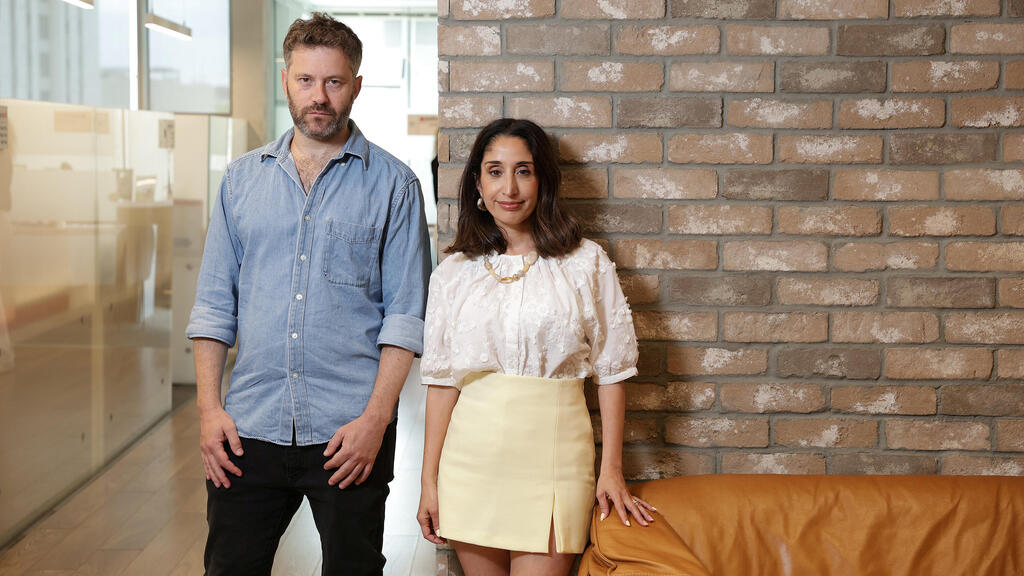
"Every market downturn is a chance to focus, cut unnecessary spending, and double down on what you do best"
As part of the Growth+ project by Calcalist and Poalim Tech, Travelier CEO Noam Toister shared how his company turned the coronavirus crisis into an opportunity. Wiserpay CEO Keren Smadja added, “It takes strong internal conviction to filter out the noise, recognize what’s valid, and stay confident in your path.”
When COVID-19 decimated the travel industry, Travelier’s revenue dropped from $1 million a month to zero in just two weeks. But instead of folding, CEO Noam Toister doubled down, buying competitors and turning crisis into opportunity. That mindset was at the heart of his recent one-on-one conversation with Wiserpay CEO Keren Smadja, as part of Calcalist and Poalim Tech’s Growth+ mentorship initiative.
The Growth+ initiative, now in its second year, aims to strengthen the resilience of Israel’s high-tech industry through a series of one-on-one meetings between experienced entrepreneurs and early-stage startup founders. These meetings are designed to offer mentorship, support, and practical knowledge about entrepreneurship, creativity, startup management, and building companies for long-term growth.
Noam, tell us about a significant crisis you experienced early on, and what you learned from it.
"We were a travel-tech company during the COVID-19 pandemic and went through one of the toughest crises imaginable. Our revenue dropped from a million dollars a month to zero within two weeks. But we emerged much stronger. We chose to go against the tide and started acquiring our competitors during the pandemic. It turned into an opportunity, though perhaps a very unique one. I learned that every crisis can be an opportunity. In nearly every situation, there's some angle you can take advantage of. Every market downturn is a chance to focus, cut unnecessary spending, and double down on what you do best. Most importantly, you have to know where you're headed and remember: it's not the end of the world."
Keren, what has been the biggest challenge you faced in the past year?
“Convincing others, and especially yourself, that you know what you're doing. During the fundraising process, you hear countless opinions, many of them negative, and some downright unprofessional: ‘Do you have what it takes to succeed?’ It takes strong internal conviction to filter out the noise, recognize what’s valid, and stay confident in your path, even if it's unconventional.”
Noam, what advice did you give Keren in this context?
“What’s really behind the question, ‘Do you have what it takes to succeed?’, which is frankly an annoying and patronizing question, is: Can you sell in the American market? How are you planning to do that? Investors don’t always articulate this clearly. I think Keren should frame the problem she's solving in a more quantitative way, she has really compelling data. And she needs to recognize that when entering the U.S. market, she's essentially starting from scratch. Moving across continents means you have to prove yourself all over again.”
What did you learn from each other?
Noam: “I learned about the debt collection space, which is far more interesting and complex than I expected. Keren has built a profitable and sustainable company in a very challenging market. I also admire her journey, she didn’t come from an elite tech unit, but worked her way up to becoming the CEO of a groundbreaking startup.”
Keren: “I’m taking away the importance of sharpening the narrative, being able to clearly communicate your value in the market. I also learned that Noam and his team acquired their competitors just two years after founding the company, which is an incredibly impressive and pragmatic move.”
Tell us something interesting or surprising you learned about each other.
Noam: “Keren began her career in a collections department. She came from the business side, not a typical ‘tech founder’ background.”
Keren: “I learned about Noam’s company, how they identified the right market and, within just two years, had the confidence and strategic vision to acquire their competitors.”














